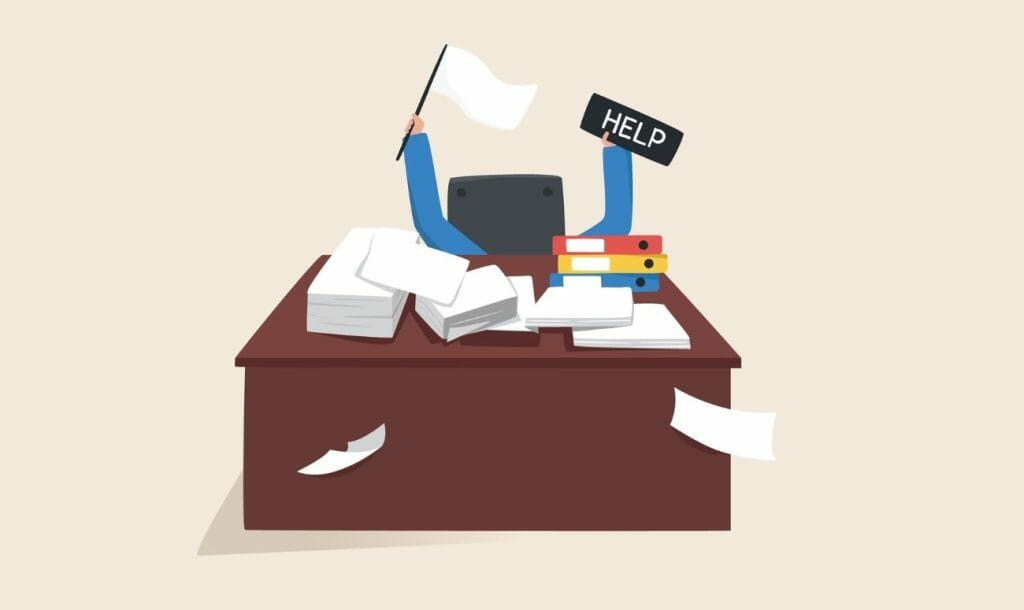All too often, when bad things occur, we spend hours or days looking back on the situation and wondering what we could have done, what we should have done, to have prevented the situation. The reasons for a mental health crisis can be unique to the person. What a mental health crisis looks like and how it’s treated will also vary from person to person. However, there a few signs that suggest you might be experiencing a mental health crisis. But first, let’s understand what a mental health crisis is.
What is a Mental Health Crisis?
A mental health crisis is when someone has an acute and potentially dangerous increase in the symptoms of their mental illness. The symptoms become so severe that the person may be unable to function in their daily life, and they may engage in self-destructive behaviours. In the most serious circumstances, the person may have suicidal thoughts or actions. “Many things can lead to a mental health crisis. Increased stress, physical illness, problems at work, divorce, changes in family situations, may trigger an increase in behaviours or symptoms that lead to a crisis,” says psychologist Leanne P.
Warning Signs of a Mental Health Crisis
These can include suicidal feelings or self-harming behaviour, extreme anxiety or panic attacks, psychotic episodes (such as delusions, hallucinations, paranoia or hearing voices), mania (intense moods, hyperactivity, delusions and unreasonable euphoria) or hypomania (a milder version of mania that lasts for a short period) among other behaviour that feels out of control and is likely to endanger yourself or others.

What is a Mental Health Crisis Plan?
A mental health crisis plan is a plan of action that’s made before a crisis takes place, so you and people in your support system know what to do when an emergency occurs. “The plan usually contains key information which is to be considered during a mental health crisis. It includes: contact details, history of mental and physical illnesses, previous anti-depressants and psychotherapies, a list of resources, information, and directions,” says psychologist Leanne P. When creating your crisis plan, you don’t need to do it alone. A mental health professional may be able to help you find the best emergency resource numbers and figure out which behaviours to add to your list.
How Can One Build a Mental Health Crisis Plan?
No one wants to worry about the possibility of a crisis—but sometimes it can’t be avoided. Being prepared in advance for a mental health crisis and sharing that plan with your loved one can help to avoid a crisis. When you suspect a crisis, you’ll need to decide who to call for help.
Professional Help
To develop a plan in advance get in touch with a therapist that deals with crises particularly.
Acceptance
Your journey of recovery will only start once you accept that you have clinical depression or are experiencing suicidal thoughts and you need help.
Identify Your Triggers
Through journaling you can track any symptoms day-to-day so that you can recognize triggers and learn ways to better control them. Once you’ve identified your stressors, you can work on a plan to resolve the problems and reduce your stress.
Support System
“Many factors contribute to recovery, including having a good support system of people that you like, respect and trust. You could find your support system in your family members, friends, teachers, or even peers. Remember, everyone’s support system can look different. What’s important is that you have people you feel comfortable talking to about what you’re experiencing and support you may need. Having a few people you trust and can turn to can help you manage everyday challenges, make difficult decisions and help develop a safety net during a crisis situation,” explains Leanne P.

Consistency
Mental illness can disrupt even the most regimented of lives. A regular schedule can help people struggling with mental illnesses know what to expect, making it easier to face daily challenges. “Being consistent with your resources such as support systems, journaling, therapist, recreational activities among others will help you stay on track and reduce the chances of relapse which is common in severe conditions such as clinical depression, PTSD and anxiety,” she further added.
What are the Resources Available in a Crisis?
If you have suicidal thoughts or ideations, please know that you are not alone and that help is available 24/7. Contact suicide helplines and numbers– support services such as India suicide helpline directory, or the Police emergency number help. Connect with counsellors and skilled professionals that are free and confidential 24 hours a day, seven days a week.
Bottom Line
If you feel your mental health is at breaking point, accessing support and talking to someone straight away is important and can provide reassurance and comfort. If you urgently need to talk to someone about how you feel, there are friendly and confidential services available to support you right now. Don’t try to handle the situation alone. If you know someone struggling with depression or experiencing thoughts of self-harm, contact mental health professionals.
About the author:
Suhasini Jha is a Mumbai-based ex-journalist who has previously worked with Firstpost and Moneycontrol.
Read More: From Atmanirbhar to Sone ki Chidiya Bharat: Lessons By BK Shivani & Rajan Navani for the New India
Like & Follow ThinkRight.me on Facebook, Instagram, Twitter, Pinterest and Telegram to stay connected.






























